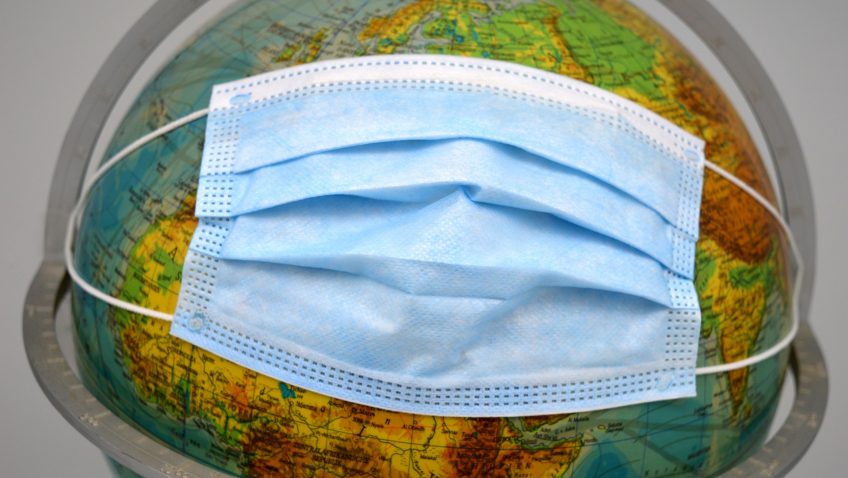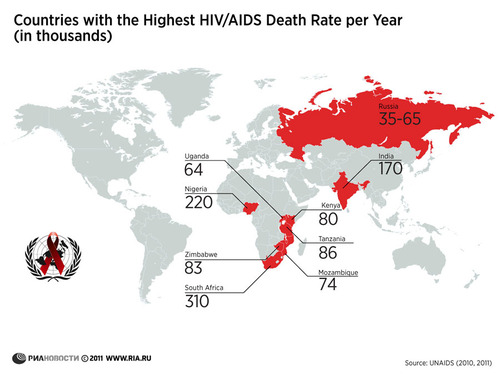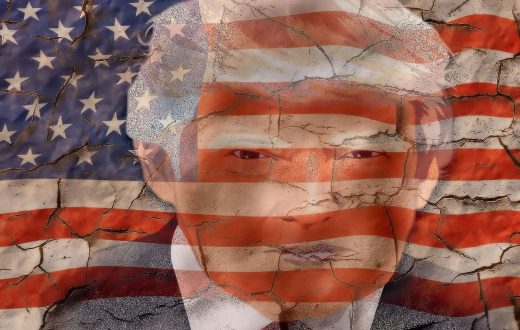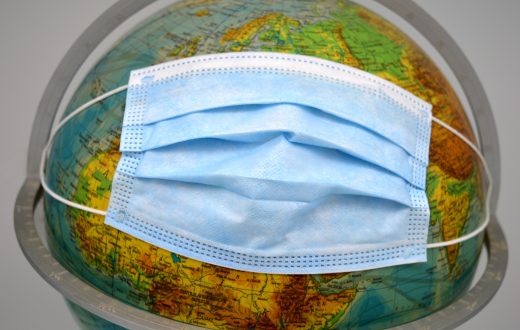COVID-19 and future of Globalisation
By: Vishnu Sasikumar
The recent corona virus outbreak has taught a lot of lessons to the globe within a short span of a month or more. The virus has penetrated almost in every part of the globe , spanning across the six continents, making its presence felt in nearly 149 countries. As the globe grapples to fight and contain this outbreak, it has learnt a lot of lessons, such that it might affect the future alignment of the system of the International Relations.
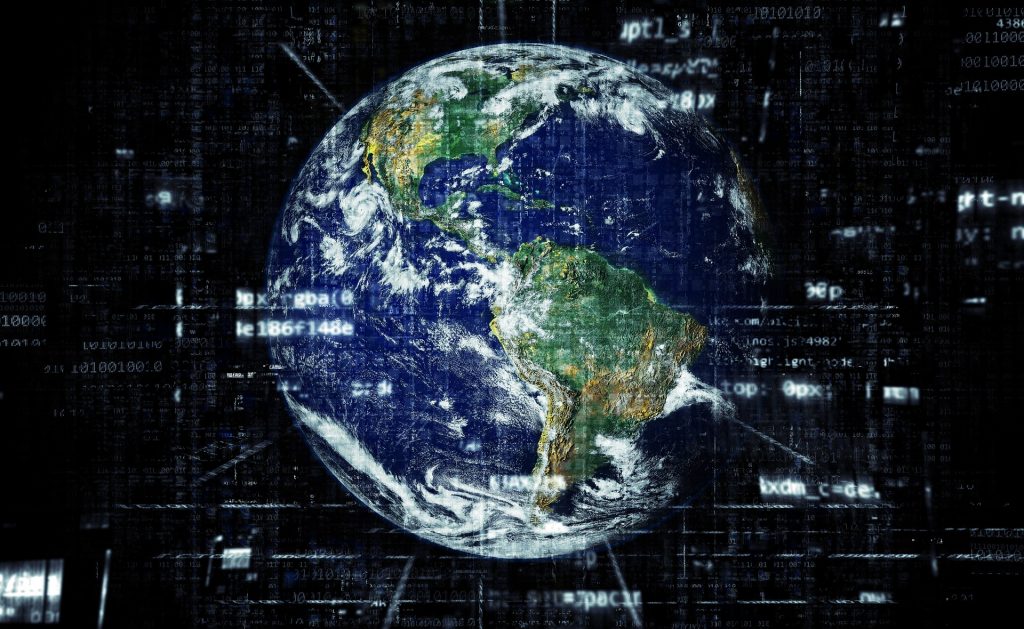
COVID-19 has shown or rather proved the extent to which the world has globalised. An outbreak which had its origins in Hubei province of China, has made its presence felt in the other side of globe and not even spared the island nation of Australia, New Zealand. Hubei, which was more or less a remotely known province, is now in the headlines of almost every news agency, multi lateral organisations of the world. While the world is currently combating the pandemic, there are certain questions which the pandemic has left, which need to be answered once it is contained.
The first and foremost question is regarding the nature of globalisation which has taken place around the globe. While the optimists argued the overall movement of goods, services, people, money would benefit all the countries of the world, the recent COVID-19 outbreak has rather reinforced the sceptical view which argued that globalisation as a phenomena only existing in the network between Washington, London, Tokyo and Beijing, i.e. Globalisation in practice only benefits the economically affluent countries of the world and these countries frame the rules , beneficial for themselves through their influence in Multi-lateral institutions. The COVID -19 has spread at a phenomenal rate throughout the world, with the epicentre now shifting towards Europe. One of the main reasons for spread of this outbreak might be China being the epicentre of the outbreak. China is the manufacturing hub of the world and there is a humungous amount of flow of goods, services and people to and fro China. Few years ago, there was an Ebola outbreak in the African mainland. This virus was far more dangerous than COVID-19, with the former’s mortality rate being nearly 50 percent and the rate of transmission was a bit lower than COVID-19. But ebola couldn’t affect the globe because one of the primary reasons being its point of origin. . The whole COVID-19 proves the unevenness or unequal distribution caused by globalisation. It has led us to question the current nature of globalisation and rethink in a new way.
The second question pertains to the responsibility for the pandemic that has occurred. Currently no country is stepping forward and taking the blame, all the fingers are pointing towards China. China is facing criticisms for its animal markets, non-transparent administrative apparatus and delay in responding to the emergency situation. The Chinese authority stepped in and undertook measures only during the Stage3 or Stage4 of the COVID-19 Pandemic. Even after being the epicentre and even when the first cases due to an unknown virus were reported back in November and December, the administration intervened in much later. According to the World Bank and IMF, the world economy is set to lose nearly USD 1.3 trillion due to COVID-19. According to Asian Development Bank, in worst case scenario, India is set to lose USD 29 Billion. There are voices which demand for a reparation from China for the collateral damages caused by this pandemic but unlike the Treaty Of Versailles where the whole blame was placed upon Germany, there is no such provision which holds a party responsible for the damages caused by epidemics, pandemics etc. which again take us to the question, Who is to be blamed. There needs to be some provisions in international charter, laws or some conventions where the party or parties must be held responsible for the collateral damage caused due to a pandemic which has aggravated due to negligence or has been created with the purpose of creating a biological weapon on the part of above mentioned party/parties. The latter is altogether on a different tangent and requires separate mechanism and techniques. While all these things are not even being thought of, the Chinese Administration is already spreading propaganda in its favour, trying to shirk away from the responsibility and blaming the U.S. for the same, which has yet another geo-strategic interest. Globalisation has also brought with it, the psychological phenomena of “DIFFUSSION OF RESONSIBILITY.” The Blame game played in the case of COVID-19 already proves it.
The third question points to the open borders, especially in the European continent. There were no doubts that open borders in Europe had a lot of advantages, but at the same time the disadvantages associated with the same are now highlighted in the current pandemic situation. With Italy becoming the second hotspot for COVID-19 in Europe, it is clear as how the virus has gripped all of Europe under its influence. Many countries in the Europe, especially the Scandinavian countries were contrary to the images associated with epidemics. Even after their excellent HDI records, excellent health system and infrastructure, these countries are also among the worst hit due to COVID-19. The Open Borders of Europe, the provision of Schengen visa are the things which have been thought upon. There seems a rise of right wing nationalist politics in these countries, demanding for closure of borders as a necessary step, which must be extended even after the pandemic is contained. COVID-19, in a way has fuelled up right wing nationalism and conservatism in Europe and has provided impetus for the same. The Governments of the respective countries are working, rather than relying on the supra-national E.U. The failure to contain the COVID-19 outbreak in Europe would be attributed to the failure of E.U. as an organisation or as a super government and this would prove the Euro-sceptics true. This is interesting to note, especially after the BREXIT, which has already weakened the EU. It would be interesting to see how the EU works or aligns itself after the pandemic has been contained.
The fourth question or the point which COVID-19 has shown is the rise of new arena or dimension of competition between the countries to gain the world superpower or leader status. History is testimony to the fact that there has been competition among countries at different historical junctures in different arenas to gain dominance all over the world. The countries have taken part in arms race, space race, IT race etc. The cold war was a culmination or rather an era where all these were taking place. The recent one being the race to be the pioneers of 5G technology, in which China and U.S. have locked horns against each other, for they know that the pioneers of 5G technology would be the pioneers of the new world where data is everything. The new arena which now has invited the globe for a match is the health sector. There are already conflicts or differences among the countries over the development of vaccine for COVID-19. The recent one being between the U.S. and the Germany, where the latter is blaming the former for stealing their findings. All the major players are in the race of finding a cure for COVID-19, for they know that the one who finds the cure for the same will have a leverage in conducting the world affairs. The U.S. is going ahead at a fast pace in order to make use of this opportunity to regain the waning power status and to counter the Chinese dominance and rise, which resonates with Trump’s policy to make America great again.
It would be interesting to see how the world responds to the above mentioned questions and how the international globe re-aligns itself once this pandemic is contained. This can even change the whole weltanschauunng of the globe. But one thing is for sure, things won’t be the same . COVID-19 has become an impetus for possible changes in world.

